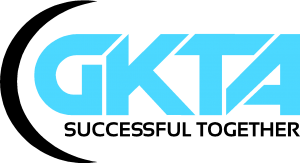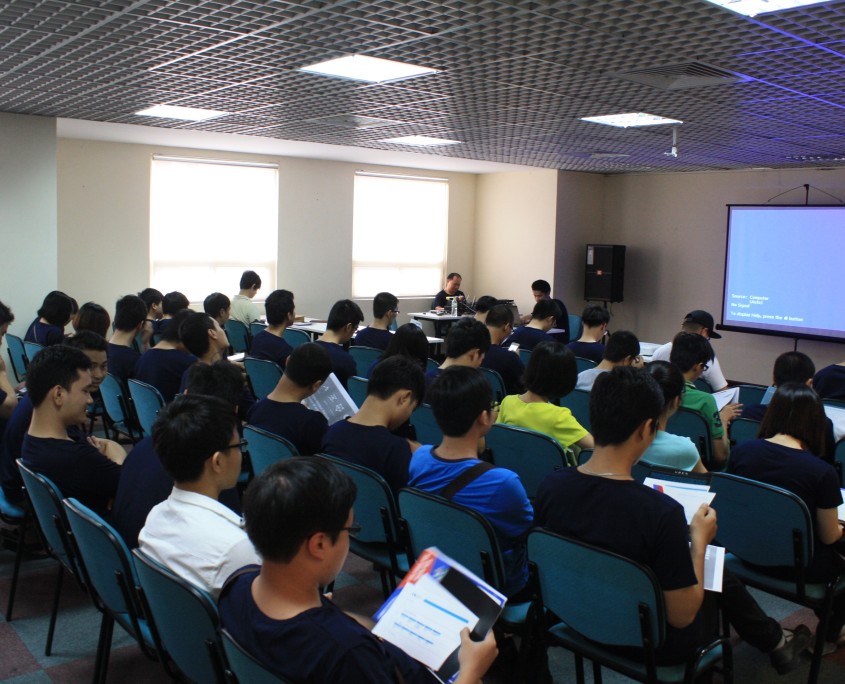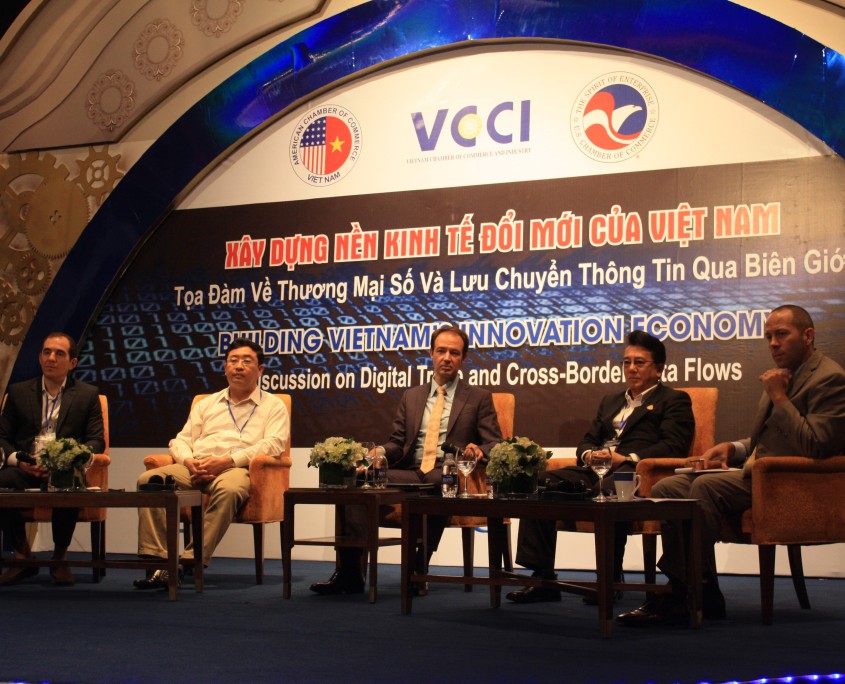Recently, we met with Brian Cotter, an Innovation Specialist with UNICEF; he explained the UNICEF Innovation Lab in Vietnam, how the tech scene is changing in Ho Chi Minh City, and how you can get involved with the nearest Innovation Lab.
Can you share a bit about yourself? What’s your background, your role in your organization, and where are you located?
BC: I’ll have lived in Vietnam nine years this June. I graduated from University of Wisconsin-Madison where I majored in Zoology. During my studies, I worked with the Global Lake Ecological Observatory Network (GLEON), which deploys autonomous buoys into lakes for data collection. When I was doing it, the project was just in the US but now it’s global. So I was working with technology even though I had a different major.
Then I had the opportunity to move to Vietnam so I took it. I started off teaching English, like many people and then worked in hospitality and retail. I helped open a restaurant and tried to open a series of convenience stores in Mui Ne, a coastal town. So my experience was working in small businesses before I tried to do a mobile app outsourcing company.
The entrepreneur style really attracted me and I didn’t want to be in the office all the time so I tried to participate in startups as much as I could. I liked building things and doing things. Today, I am based in Ho Chi Minh City as an Innovation Specialist with UNICEF.
How long has the UNICEF Innovation Lab been present in Vietnam? What’s the role of the UNICEF Innovation Lab here in Vietnam?
BC: We’ve been here for six months; 2015 is foundational year so we are working to determine the best approach. The Innovation Unit for UNICEF global has been around since 2007 with growth accelerating since 2009. We are an interdisciplinary team of individuals around the world tasked with identifying, prototyping, and scaling technologies and practices that strengthen UNICEF’s work. We build and scale innovations that improve children’s lives around the world.
In the UNICEF context, Innovation Labs generally have a dual imperative. Firstly they exist to support the utilization of innovative processes in the development of internal programs and the identification of opportunities for improved results through the use of emerging technologies. Secondly they exist to empower the local communities and stakeholders to develop the capacity approach complex problems and create sustainable solutions.
Our main office is in Hanoi but we have sub office in Ho Chi Minh City so I travel between both cities, depending on work. However, the Innovation Lab is initially focused in Ho Chi Minh City.
The UNICEF Innovation Lab is both a physical space and a “conceptual environment,” correct? How does that work exactly?
BC: The Lab part of the Innovation Lab means a physical space. It is our mission to participate in a community of like-minded individuals and organizations to create a better future for Vietnam through innovation. The physical space is there to embody the type of community we want to empower: equitable, sustainable, impactful. We want to improve the collaboration across different sectors of the entrepreneurship and startup community, to convene partners around social impact, and to provide opportunity to those who are traditionally left out of the conversation. In order to create this space, we must first exemplify these values by working collaboratively with different stakeholders to identify our best approach for success and continually work to improve the mission and service provided through the space.
There are about a dozen UNICEF Innovation Labs around the world, how much collaboration is there between the labs?
We have monthly calls; I can reach out to them at any time. There’s a growing regional team to support us in bringing global context to our locales. There is another Innovation Lab in Indonesia—we talk almost every day. We share documents, struggles, and bottlenecks to help support each other. The context of every country is very different but we work together to share solutions. I set up a Skype group between ASEAN innovation labs and we have bi-weekly regional calls. In terms of technology, we use the cloud for collaborative documents and we utilize collaborative project management tools such as Trello.
What are some of the challenges that the UNICEF Innovation Lab in Vietnam seeks to address?
BC: We have nine Innovation Principles so one result of a principle is that everything in the lab is open-source. In our space, technology is not the innovation—the use of that technology in a novel way is the innovation for us. We use technology as a tool to deliver results. The tech is a tool, it doesn’t have to be bleeding edge, it has to be relevant. It needs to create a competitive advantage and be scalable. We pose a simple question: “How do you use it to deliver a better result?”
Project Mwana in Zambia is an example of this, which cut down the turnaround time for testing blood for HIV by half. The traditional method involved paper and post: 30 days to send the results, 33 days to get them back. With Project Mwana, the change was in delivering test results via SMS. Thus, critical treatment can get started earlier with better results.
Looking to the horizon, UNICEF will leverage trending technologies. The Innovation Lab looks at the situation and asks, “three-to-five years down, what does the country need? What does UNICEF need?”
So Wearables is a continuing theme now as well as the “Internet of Good Things.” We are addressing emerging tech areas and applying them in the context and using current technology in novel ways. What do we need to develop today that we will need to scale in three-to-five years?
Locally, the global innovation unit has identified Vietnam as a key contributor (key regional leader) that can contribute to the emerging technology community. Vietnamese expertise in ICT can be used to impact other parts of the world, which is why Vietnam was chosen to be one of two initial innovation labs in SE Asia.
We hope to be engaged and implement here, and then export the innovations that emerge.
Is there any recent news or upcoming developments about the UNICEF Innovation Lab that you’d like to share?
We opened our Global Innovation Lab in May in New York City, which focuses on global initiatives. U-Reports is one global initiative. U-Report began as an SMS program in Uganda in 2010 as an opportunity for young people in developing countries to express their views from a basic mobile phone. Today the program, developed on RapidPro, is in 13 countries and over 650,000 people are sending or receiving SMSs every week. Over the past four years U-Reporters have:
- Sent and received over 50 million messages, each one representing a voice, question or opinion.
- Improved the impact of UNICEF health programmes for mothers and children
- Identified or verified cholera, Ebola, and typhoid outbreaks
- Successfully advocated to support the Children Act to outlaw corporal punishment in Ugandan schools
- Increased the rate U-Reporters knowing their HIV/AIDS status in Zambia by one third.
- Advocated for girl’s rights to education at Rio+20 conference
- Fought against the practice of Female Genital Mutilation alongside multiple faiths, legally and culturally.
You’ve been in Vietnam since 2006, right? How has the tech or startup scene changed since when you first arrived here?
BC: It’s accelerating. There is more action, desire, maturity. I’ve been around developers for awhile, they used to develop for their day jobs then go home and relax. Now they are developing at home because they are passionate about their side projects. The acceptance that “it” is possible has increased so there is additional motivation to build. In terms of the official ecosystem, it’s still so early so there are opportunities to influence things at the beginning.
What do you think readers should know about the startup scene in Vietnam?
BC: It’s a bit rough around the edges. There are still significant gaps and opportunities for development. The momentum is accelerating. Before, when Saigon Hub was around, people wouldn’t pay for events. Now I see that many people are willing to pay for events. They recognize that there is better quality content available, so they pay for it. The ecosystem is maturing organically in that regard.
What should we keep an eye out for in terms of startups and innovation coming out of Vietnam?
BC: There’s a lot of really smart people in this country. If they focus energies on a startup they could make some pretty incredible things. We saw VP9 at TechFest Vietnam; that could be incredible. But he [the founder] is not unique, there are a lot of people out there who don’t know the value of their market knowledge. Vietnam is bursting with so much raw talent—and discipline to a specific expertise. But that’s all they have so there needs to be support around it.
There are tech people in hardware and academia who don’t know how to talk about or differentiate their products. If they got the support of the ecosystem—whereby if other skills to run a startup were made accessible to a broader audience, then some magic could happen. It would require other focus put on soft skills; being able to present and express ideas and then we could see some significant tech and intellectual property-based technology break out. There are a lot smart people whose inventions never see the light of day.
Also, uniquely Vietnamese styles are starting to come out. Vietnamese are being inspired by other cultures and are not just copying anymore— they are putting their own twist on things. The maturity is coming. The tech startup scene has some of that; big things are coming, not just copies.
If people want to get involved with the UNICEF Innovation Lab, how can they do that in Vietnam?
The first thing you should know is that if you walk in and say, “I want to make a difference,” then I’m not going to say no. Everyone has a part to play, from CEO on down. We have open global challenges on Wearables and Causetech.net and will be making UNICEF problems within Vietnam more visible to the tech entrepreneur community as well.
One feature would be a weekend workshop so we can recruit mostly marginalized people to train skills and create projects. The sustainable projects will be guided by mentors and eventually those projects will develop into organizations. We are basing this idea off a framework that has been used in Kosovo so it’s a “by youth for youth” component. It’s a model that has been crafted through iteration after two-to-four years of events so it’s not from scratch. This workshop will be coming in late 2015 in HCMC and hopefully we can see it in other cities in Vietnam in 2016.
In effect we are turning innovators toward UNICEF problems and are engaging marginalized youth to enable equitable access to innovation and entrepreneurship resources like accelerators and training. Everyone has the opportunity to participate as mentors, entrepreneurs, providing funding instruments, or just sharing the vision. If you simply want to follow our progress, check us out on Facebook.
Any advice for locals or foreigners who want to become entrepreneurs in Vietnam?
Just do it. You don’t learn until you launch or until you do it. If your gut tells you that you want to try then do it, listen. Figure out a way to do it without losing your job. Judge for yourself how much risk you are willing to take.
Thanks to Brian Cotter, who shared his time with us.










































